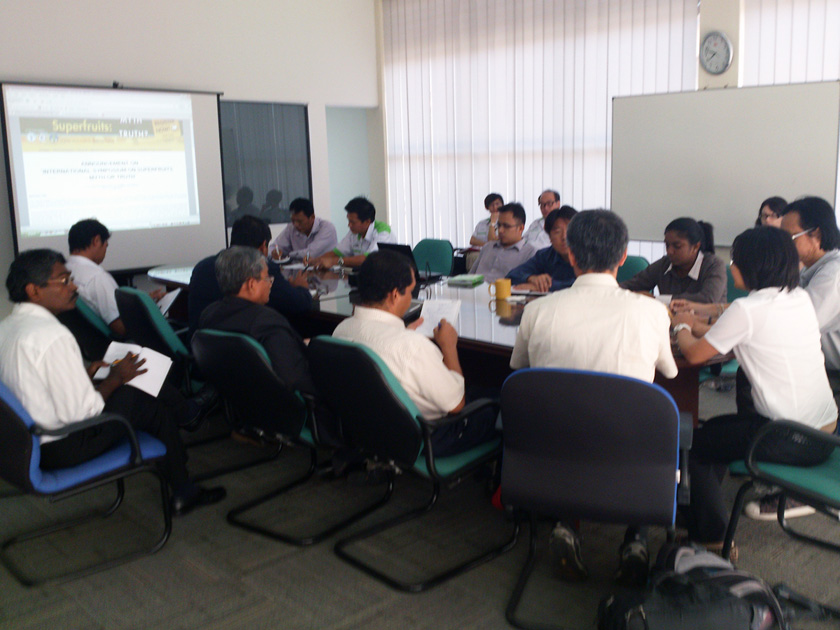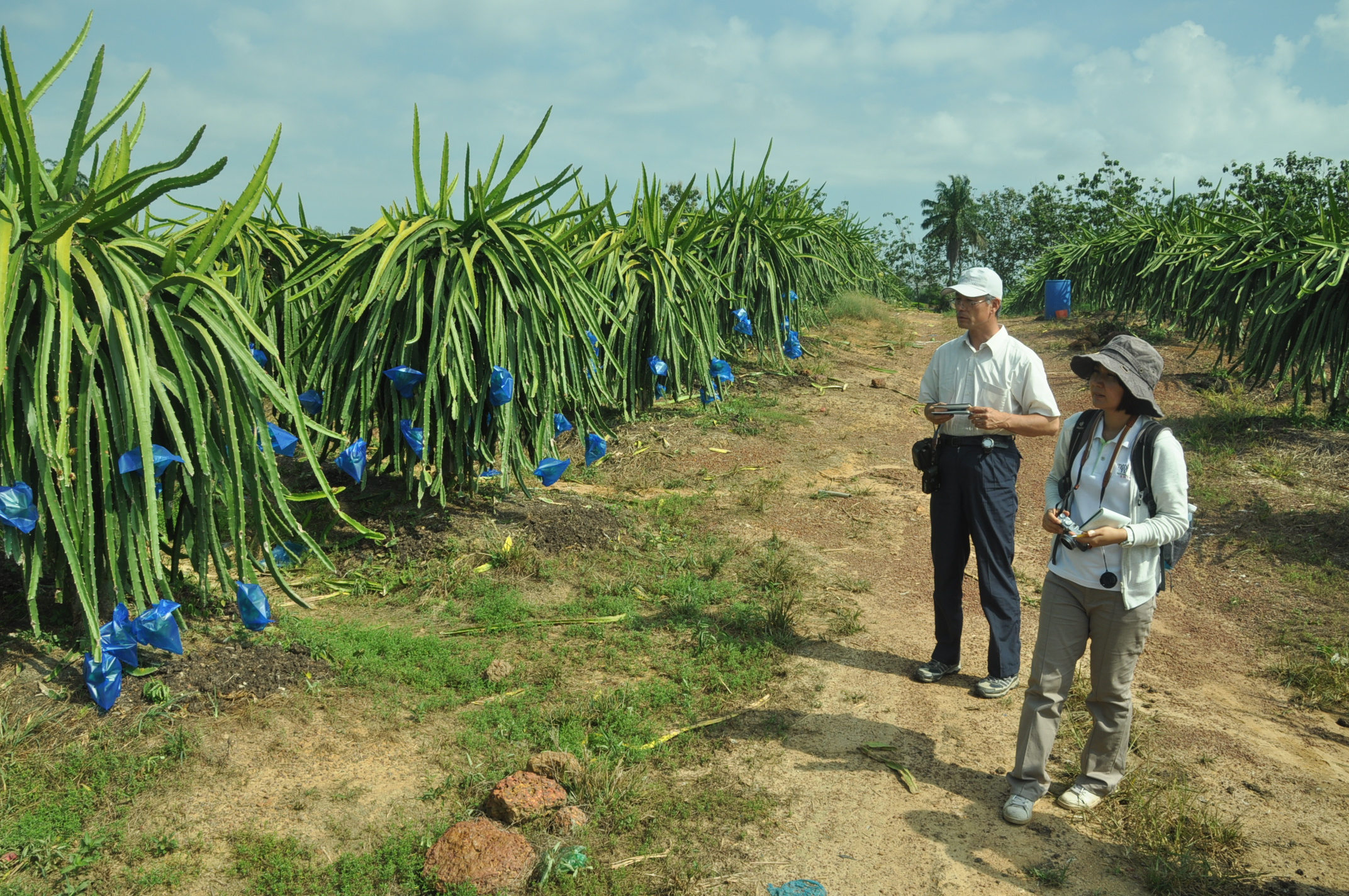KUALA LUMPUR, MALAYSIA: The International Tropical Fruits Network (TFNet) organized a joint meeting with the Japan International Research Center for Agricultural Sciences (JIRCAS) and various local stakeholders on 18 March 2013 at the TFNet head office.
 The meeting facilitated the exchange of ideas on issues facing the tropical fruit industry in Malaysia, identifying possible areas of collaboration with JIRCAS. JIRCAS is funded by the Japanese government to conduct agriculture research and development in Japan and developing countries. It has worked in Vietnam, Laos, Cambodia, and Thailand on crop improvement and disease control on citrus and other tropical fruits such as durian and mangosteen.
The meeting facilitated the exchange of ideas on issues facing the tropical fruit industry in Malaysia, identifying possible areas of collaboration with JIRCAS. JIRCAS is funded by the Japanese government to conduct agriculture research and development in Japan and developing countries. It has worked in Vietnam, Laos, Cambodia, and Thailand on crop improvement and disease control on citrus and other tropical fruits such as durian and mangosteen.
The tropical fruit stakeholders who attended include representatives from government agencies Malaysian Agricultural Research and Development Institute (MARDI), Department of Agriculture (DOA), Malaysian Pineapple Industry Board (MPIB), and Federal Land Development Authority (FELDA). University of Nottingham and University Putra Malaysia represented the academe while the Malaysia Fruit Growers Association (MFGA) represented the private sector.
Based on the discussion, the issues and challenges of each crop are as follows:
Jackfruit. Rust-like symptoms occur in almost all varieties of jackfruit, affecting fruit quality and marketability. While the exact reason remains unclear, evidence points out that the symptom is caused by both biotic and abiotic factors.
Papaya. The recent downfall of the papaya industry in Malaysia can be attributed to devastating diseases. Black rot and papaya dieback caused by Erwinia mallotivora have crippled production, especially for the eksotika and piola varieties. MARDI is developing stronger pureline papaya exotica seeds using selective breeding. Asia Fruits Sdn Bhd of MFGA was able to reduce disease incidences by proper field sanitation and soil amelioration treatments. Beneficial microorganisms seem to be effective when used during the early stages of planting.
Pitaya. Soft rot caused by bacteria Erwinia caratovora destroyed many farms in early 2010. Some growers have managed the disease by employing practices such as improved field sanitation, soil amelioration, and biological control.
Guava. Root knot nematodes in sandy soil are present but Dazomet has been used to control the pest.
Banana: Moko disease (Ralstonia solanacearum) currently plagues cooking and dessert bananas. Panama wilt (Fusarium oxysporum) has also been affecting dessert bananas. MARDI has been working with the Malaysian Institute of Nuclear Technology (MINT) to develop resistant varieties using irradiation techniques.
Pineapple. The increasing demand of planting materials for the MD2 variety has encouraged the propagation through tissue culture. There have been occurrences of soma clonal variation of up to 30%, affecting the grower confidence. MPIB is also working with MINT to decrease clonal variation by using irradiation techniques.
Mango (Harum Manis variety). In terms of production, low fruit set is common and this is the major concern among the mango growers. Postharvest processes such as vapour heat treatment can turn the skin brown, affecting overall appearance and quality.
After the discussion, the JIRCAS representatives indicated that they need to discuss the proposals with the relevant authorities before considering any future collaboration with Malaysia on the following areas:
- Assist in improving field mechanisation in tropical fruit cultivation
- Improvement of fruit setting in mango, especially the ‘harum manis’ variety
- Mitigating the browning discoloration on mango due to the use of vapour heat treatment for exports to Japan
- The development of disease tolerant banana varieties

